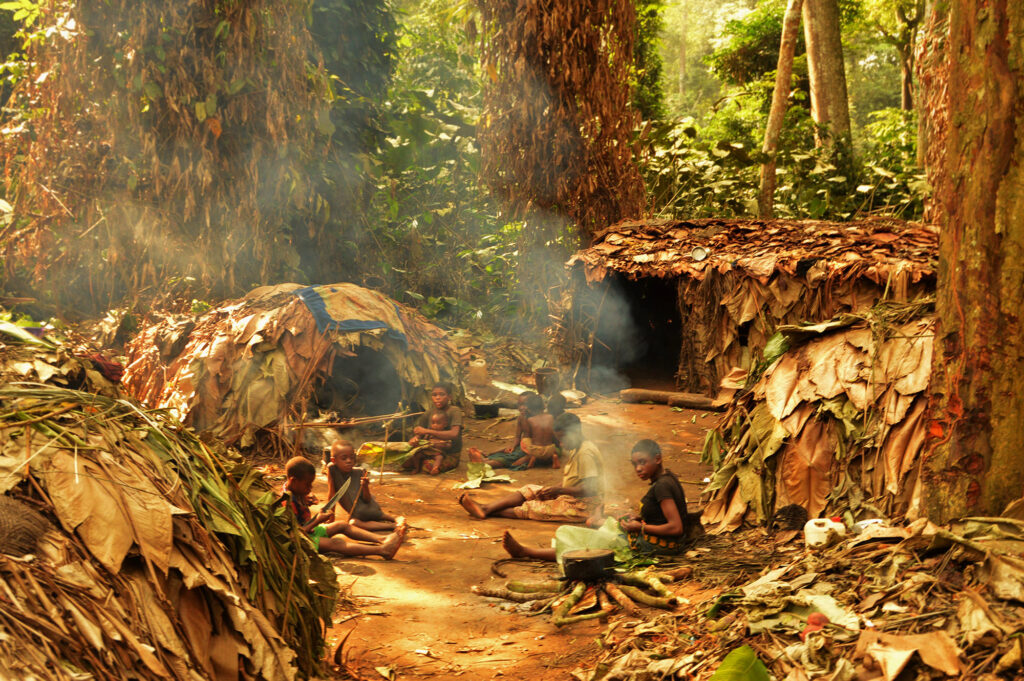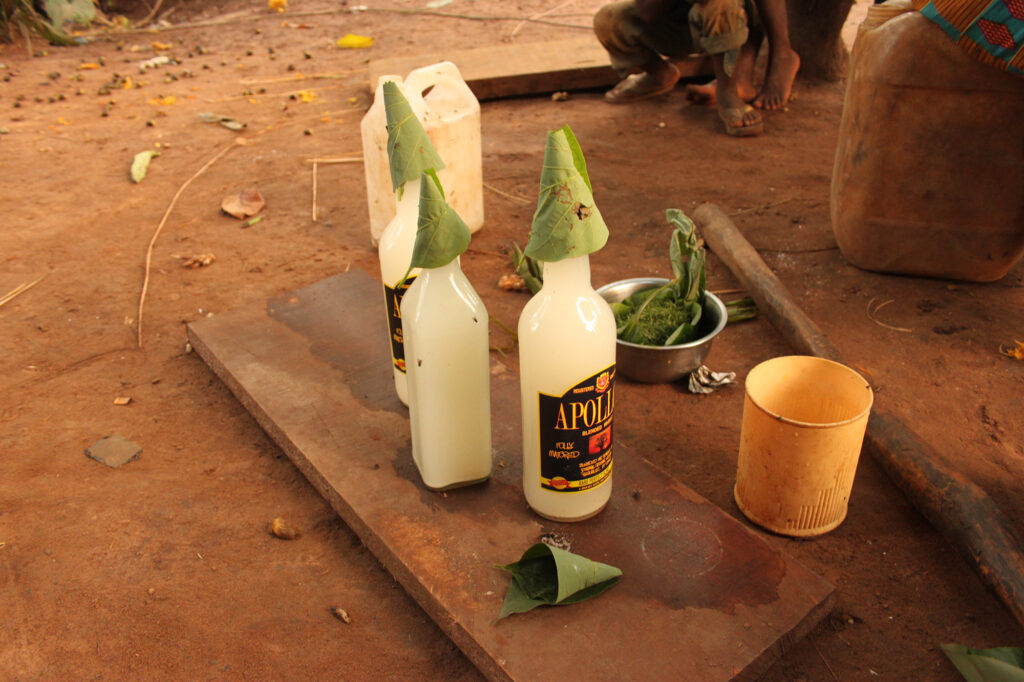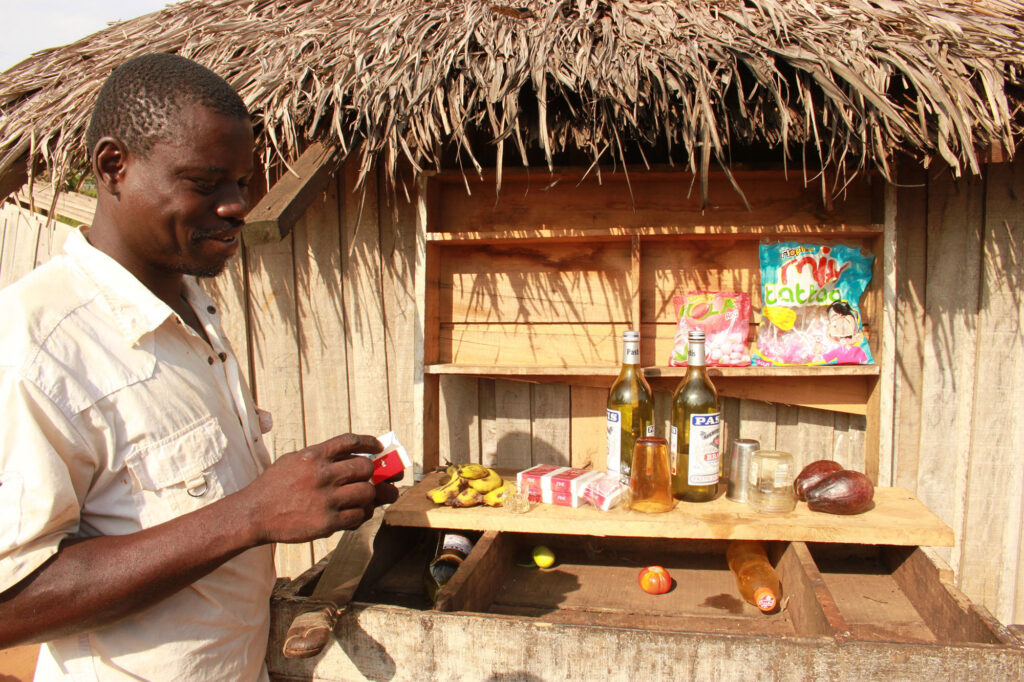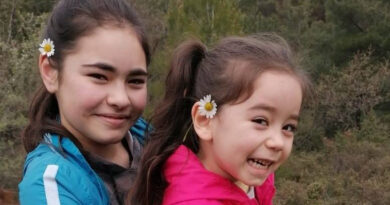Abuse From Logging Companies And Conservationists Leaves African Pygmy Tribe Plagued By Alcoholism
The Congolese Pygmy hunter-gatherer tribe has seen its members succumb to alcoholism as logging companies and conservation groups abuse and coerce them into leaving behind their traditional way of life.
A team led by Cambridge University found that the once isolated Congolese ‘Mbendjele BaYaka’ hunter-gatherer tribe, also referred to as ‘Pygmies’, have seen their traditional lifestyle upended by conservation groups, logging companies and the government.
Dr Nikhil Chaudhary, Senior author of the paper and Assistant Professor in Evolutionary Anthropology at the Department of Archaeology, University of Cambridge told Newsflash: “Our team studied three Mbendjele camps situated in Congo’s Ndoki forest. We found that 44.3 per cent of our sample had a hazardous volume of alcohol consumption based on WHO standards.”

This level of consumption is significantly higher than in other segments of the Congolese population.
Dr Chaudhary explained that since the 1980s vast swathes of rainforest that were traditionally home to the Pygmy people was handed over to multi-national logging companies and conservationists.
As this trend has continued the Pygmy have seen their traditional nomadic lifestyle turn into a sedentary lifestyle in which abuse from logging companies and ‘eco guards’ has resulted in alcoholism running rampant among the once isolated tribe.
According to Dr Chaudhary, the attack on the traditional lifestyle of a community that he describes as “incredibly kind and welcoming” comes from several directions.
The ability of the Pygmy to live a nomadic lifestyle, surviving by hunting and fishing, has become increasingly difficult as their hunting grounds become either ‘protected areas’ or logging grounds.
The loss of their traditional land combined with the pressure from the government and logging companies for them to live a more settled lifestyle in sedentary villages has ripped the tribe from its roots.
The so-called ‘protected areas’ have, according to Dr Chaudhary, become areas notorious for the abuse of the Pygmy people.
He explains that ‘eco guards’ (young armed men employed by the conservation groups) regularly abuse and imprison Mbendjele people who wander into the protected areas that were once their hunting and fishing grounds.

The tribe’s traditional survival methods have come under pressure as roads built by the government linking their villages to the logging grounds brings with them new employment ‘opportunities’ primarily with the logging companies themselves.
The rapid change in the environment surrounding the tribe that not so long ago would have gone decades without interacting with the ‘outside world’ has brought with it the plight of alcohol dependence.
Dr Chaudhary said non-Pygmy people have taken advantage of the distress inflicted on the Pygmy by encouraging them to abuse alcohol which in turn gives them control over members of the tribe (that companies see as a source of labour) that often become indebted as a result of the addiction.
Interviews carried out by Dr Chaudhary and his colleagues revealed that the tribe’s lack of knowledge surrounding the effects of alcohol abuse has only exacerbated the problem.
Children are often exposed to alcohol at a very young age with mothers dipping their fingers in alcohol and dripping it in the mouths of infants and even drinking during their pregnancy.
Although men drink more on average than women, this is mainly due to the fact that men drink more per event rather than drinking more frequently, according to the study.
The tribe has been introduced to alcohol but without the knowledge of its dangers and side effects, making them far more vulnerable to the substance than most in the ‘outside world’.
This phenomenon is not solely a problem for the Pygmy, as according to Dr Chaudhary, alcohol dependence and abuse in once-isolated hunter gatherer tribes has been documented in other countries such as Namibia, Cameroon, Botswana and among aboriginal groups in Australia.
Dr Chaudhary said that the abuse has led to “alcohol-induced violence, high blood pressure and increases in the prevalence of diarrhoea, which represents one of the major causes of mortality among indigenous populations.”
He emphasised the importance of not focusing merely on alcoholism as the issue as it is a product of the abuse and pressures these tribes face from outside forces.

He said: “Alcohol abuse in response to hardship seems to be a widespread feature across all societies, including our own, what really needs to be tackled is the unjustified hardships faced by the Mbendjele.”
Currently very little is being done to protect the Mbendjele according to Dr Chaudhary, and even the most well established NGOs working in the region have failed to make any real headway in reversing the worrying trend facing the tribe.
“Given the combined pressures of deprivation, exploitation and rapid acculturation that BaYaka populations are currently facing, this research is essential to provide an evidence base for programmes aiming to improve health and social outcomes.
“Crucially, it is essential that the communities are involved and empowered during the process of creating these health interventions.”
The study titled ‘Quantifying patterns of alcohol consumption and its effects on health and wellbeing among BaYaka hunter-gatherers: A mixed-methods cross-sectional study’ was published in the journal PLoS ONE on 27th October.



